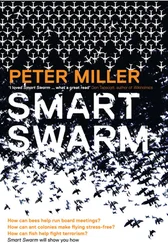The fishermen tried to talk to us as we approached the beach, but our mutual incomprehension was total. Eventually we realized from their gesticulations that they were asking for some kind of compensation. Jesse pulled out his empty pockets, pointed to the raft, and made an I-wash-my-hands-of-it gesture in their direction. The fishermen seemed unimpressed.
As we disembarked, the kids stopped their soccer and stared wide-eyed. It was strange to stand on land again. At first my legs shook with every step. It seemed equally strange that the sun was only halfway past its peak; we had been through so much that it felt like weeks, not hours, since our eggs-and-plantains breakfast. Now that we had reached some kind of safety my stomach surged and churned with hunger.
We ended negotiations with the increasingly irate fishermen by simply walking away from them, up the steps that led to the mansion – which was, we soon realized, a hotel. A visible discontinuity where new paint met old indicated that it had half-collapsed in the earthquake, and had since been rebuilt. We staggered onto its elegant verandah, collapsed onto its lacy metal chairs, and stared dumbly out at the now-placid Caribbean that had so nearly killed us all. The two others in attendance, an elderly and well-dressed white couple, observed us with ill-concealed bemusement. Moments later a black waiter in a white uniform joined us. I nearly laughed aloud. I felt like I had just stepped into a Luis Bunuel film.
“ Madames, monsieurs? ” he asked politely, obviously puzzled by the appearance of four bruised, battered, and thoroughly bedraggled white people on his verandah, but making the best of it. “ Quelquechose a boire? ”
I opened my mouth to order a Coke and realized we had no money. We had nothing at all but the clothes on our backs and the drowned carcass of my iPhone.
“I bet they’re already looking for us,” Jesse said grimly, just as the thought hit me too. “Four stranded white people on the south coast of Haiti aren’t exactly going to be hard to find. We’re a long way from safe.”
Our surreal refuge turned out to be the Hotel Cyvadier, only a few kilometres from the town of Jacmel. Its proprietor was a frail, white-haired Frenchwoman named Marie-Anne. I tried to explain our situation to her in my halting French: “ Nous sommes perdus. Nous avons perdus tout. Nous devons telephoner nos amis au Port-au-Prince. ”
She peered at us suspiciously through her thick glasses, then looked over at our waiter, frowning as if he were somehow responsible for our undesirable presence, before turning back to me. “ Vous pouvez telephoner les policiers. ”
“No,” Jesse objected. “The cops here are totally corrupt. Whoever sent that boat after us is probably already offering a reward for information.”
I tried to call the right words from the dusty attic of my brain. “ Nous n’avons pas confiance au policiers ici. ”
Marie-Anne looked at me for a moment as if trying to measure me, and then at the other three in the same way.
“ S’il vous plait, ” Anya said, her voice low and guttural, as if the plea had to be dragged reluctantly from her throat.
The old Frenchwoman sighed and nodded. Her expression softened from skepticism to sympathy. “ Oui. Les policiers, les noirs ici… ” She shrugged. “ Les meilleurs sont sans utile. ”
The blatant racism made me uncomfortable, but I decided I wasn’t in any position to correct her bigotry. She spoke to the waiter with fast, harsh words that sounded almost but not quite like French. Haitian Creole, I surmised, the native tongue for 90% of Haiti’s population. Probably the fishermen had not understood us because they spoke no French at all.
The waiter, whose French had seemed excellent to me, waited patiently, nodded agreement, and departed. We looked uncertainly at each other, unclear about what had been decided, until he reappeared with a silver tray on which was set an ice bucket, four glasses, four bottles of ice-cold Coke, and a single Nokia cell phone.
I had never tasted anything quite so delicious as that sweet and violently fizzy bottle of Coca-Cola. As we drank, the waiter hovered over us, watching the phone as if we might grab it and pitch it into the ocean. Jesse picked it up, hesitated, and looked at Anya, who rolled her eyes and rattled a phone number at him. He nodded sheepishly and dialled. I was amazed there was a functioning cell network out here.
“Zavier,” he said, speaking loudly. “It’s Jesse. I need you to come to Jacmel, you understand? Jacmel, right away, immediatement. To the Hotel Cyvadier. Today. Aujourd’hui . Right now. As fast as you can. Vitesse . Vitesse . OK? D’accord? ” His accent was painful: Jesse had taken only the minimum two years of French in high school before abandoning it in favour of more technical subjects. “Good. Bon. Merci. ” He hung up and reported, “He’s coming. Now all we have to do is hope he beats the bad guys here.”
Anya shook her head. “Give me the phone. I’m going to call my uncle.”
Jesse looked reluctant. “Does he have people in Haiti?”
“He will send people. Or buy people.”
“Do we really need to get him involved?”
Sophie answered for her: “Jesse, right now we need all the help we can get.”
He frowned, conceded the point, and gave Anya the phone. She dialled a number from memory, paused a moment, then punched another long series of digits. I noticed Sophie watching carefully. A brief conversation in Russian ensued, with Anya sounding more passionate than she ever did in English.
“He is sending help,” she reported when it was over. “But it will take time. Maybe today, maybe tomorrow.”
“Anya,” I said, wondering what kind of uncle had men to dispatch to Haiti on short notice, “who is your uncle?”
“Viktor Kharlamov.”
She said the name like I should know it, and it did ring a vague bell.
“We could call Clark or the DEA,” I suggested. “They might be able to… ” My voice trailed off. I doubted they had people on the ground in this failed state. They might call their compatriots here, but in this corrupt country, that might worsen our situation. Best to leave the authorities out of this for now. Once we got back to Port-au-Prince we could seek refuge at the American embassy. Until then we were better off on our own.
Anya passed the phone back to the grateful hands of our waiter.
“Grassfire,” Sophie said to Jesse. “This open source insurgency. Who are they?”
They exchanged a tense and meaningful look before he gave in and answered. “An open source insurgency isn’t a single organization. Grassfire includes dozens of groups and hundreds of individuals with one common objective, to unearth, publicize, and resist government brutality and tyranny across Latin America and the world. Working together independently, oxymoronic as it sounds.”
“Not oxymoronic at all,” Sophie said. “A swarm.”
Jesse squinted at her as if he didn’t know that word. “If you say so. I call them a network.” Sophie frowned her I-disapprove-of-your-imprecise-terminology frown, but let it slide. “They share information online, anyway. Information is basically all we gave any of the other groups. And a couple of our old prototype drones.”
“And my designs,” Sophie said sharply. “My neural nets.”
“Information, like I said. It’s not like you’re losing money. They could never have afforded to license them. They’re doing good work, and they couldn’t do it without the new technology.”
“Since when are you a do-gooder?” I asked skeptically.
“If you want a picture of the future, imagine a boot stomping on a human face, forever,” Anya said unexpectedly. I recognized the quote: George Orwell. “Governments are dangerous to human liberty. More dangerous every year. It will be our faces under the boot soon if we don’t do something.”
Читать дальше












